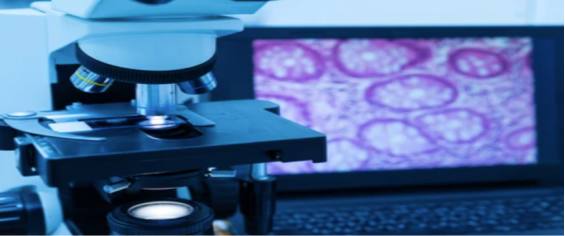NF-κB Translocation Imaging Services
Nuclear factor kappa B (NF-κB) is a key transcription factor involved in mediating inflammation, cellular stress response and tumor progression. It also controls cell and tissue morphogenesis, including the proliferation and branching of the breast. Quantitative measurement of NF-κB nuclear translocation is an important research tool in cellular immunology. The established methods have many limitations, such as poor sensitivity, high cost, or dependence on cell lines. Therefore, it is very important to use new imaging methods to measure the nuclear translocation of NF-κB transcriptional active components.
 Figure 1. NF-kB (nuclear factor kappa-light-chain-enhancer of activated B cells) protein complex.
Figure 1. NF-kB (nuclear factor kappa-light-chain-enhancer of activated B cells) protein complex.
NF-κB Translocation Imaging Analysis
CD BioSciences can provide you with a one-stop NF-κB translocation imaging analysis service. We combined high-content automated fluorescence imaging of NF-κB protein subunit fusion with the stability of monoclonal cell lines to analyze the real-time dynamics of NF-κB activation in a single cell.
NF-κB Translocation Imaging Analysis Workflow
The following is the workflow of NF-κB translocation imaging analysis.

Cell line and cell culture
The target cells stably expressing the N-terminal GFP-labeled p65 were seeded on a micro-transparent 96-well black plate and grown at 37°C and 5% CO2 for 2-3 days.
Step 1
Treatment of cells
Before imaging, add a certain concentration of fluorescent dye to the culture medium to label the nuclei for 45 minutes.
Step 2
Fluorescence microscopy
5% CO2 was delivered to the sample plate position, and the NK-κB nuclear translocation in the target cells was imaged with a fluorescence microscope at 37°C.
Step 3
Image analysis and statistical analysis
Computer image analysis software was used to quantify the NK-κB translocation map and simulation parameters.
Step 4Delivery
Simulation parameters of all translocation maps
Other relevant data
Our Advantages
- Accuracy of NF-κB translocation profile and cell subpopulation identification
- Confocal microscope is used to improve the resolution of single-cell measurement
- High-throughput detection, simple and cost-effective
- Reducing data discrepancies caused by operations
- Experienced scientists provide experimental consultation
CD BioSciences has a professional team and advanced imaging equipment. The entire process of NF-κB translocation imaging analysis is operated by experienced technicians to ensure the accuracy of the experiment. If you have any needs for NF-κB translocation imaging analysis, please feel free to contact us.
- George T C, Fanning S L, Fitzgeral-Bocarsly P, et al. Quantitative measurement of nuclear translocation events using similarity analysis of multispectral cellular images obtained in flow[J]. Journal of immunological methods, 2006, 311(1-2): 117-129.
- Di Z, Herpers B, Fredriksson L, et al. Automated analysis of NF-κB nuclear translocation kinetics in high-throughput screening[J]. PloS one, 2012, 7(12): e52337.
*If your organization requires the signing of a confidentiality agreement, please contact us by email.
Please note: Our services can only be used for research purposes. Do not use in diagnostic or therapeutic procedures!

